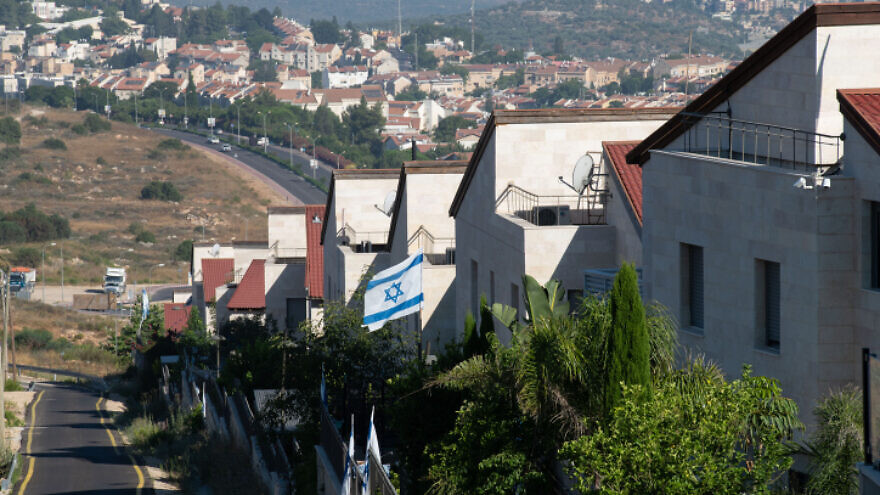by David Isaac
Washington wants to present itself as even-handed and so has adopted a false narrative of "settler violence," say settlement leaders.
 |
The city of Ariel in Samaria, July 2020. Photo by Sraya Diamant/Flash90. |
Leaders of communities in Judea and Samaria criticized America’s new “visa restriction policy” targeting “extremist settlers” who engage in violent acts against Arabs in the region.
“In the spirit of being ‘fair and balanced,’ the world’s superpower today decided to impose sanctions on a handful of people,” Gush Etzion Regional Council head and Chairman of the Yesha Council Shlomo Ne’eman said in a statement on Tuesday.
Announced by the State Department on Tuesday, the new policy would deny visas to anyone who ends up on its banned list. The names will not be made public.
“While the State of Israel is in the midst of a war of survival, a war of light vs. darkness, the United States is trying to show that it is balanced by focusing on isolated cases of criminals taking the law into their own hands,” Ne’eman said.
By “balanced,” Ne’eman means that the U.S. wants to present itself as even-handed between Arabs and Jews.
“They’re trying to be politically correct. They’re saying, ‘We don’t just condemn Hamas,” he told JNS, explaining that Washington has adopted a false narrative about a surge in “settler violence.”
“Violence in the West Bank this year is at levels not seen since the Second Intifada, and in recent weeks, an alarming surge in violent acts has driven this unwelcome record even higher,” said Matthew Miller, U.S. State Department spokesman, at a briefing on Tuesday.
Oded Revivi, mayor of Efrat, one of the larger cities in Judea, shared the same explanation for the U.S. move, telling JNS, “The only reason I can think that the American administration is putting focus on this is because they’re trying to create a picture where they are objective regarding what’s happening in the region—that they’re not just giving an open check to the Israeli government to do what it believes need to be done against Hamas in Gaza.”
The problem with the U.S. approach, he said, is that it tries to appear as an ‘honest broker’ at Israel’s expense.
“Not only are they stepping on Israel’s reputation, but they’re shaming half a million Jewish Israeli residents who live in Judea and Samaria, the vast majority of whom are people who observe the law,” Revivi said.
The number of acts committed by Jewish extremists in Judea and Samaria is minuscule, he said.
“I sat with the police commander of the whole region of Judea and Samaria just last week. And this topic came up. And we asked him please to include the actual figures. How many acts of violence are we talking about?
“The biggest [number] that we were quoted was that for every act of violence done by a Jewish person in this scenario, we have about 150 times more acts of violence done by the Palestinians,” Revivi said.
According to Israeli Police figures made public in November, in the period from the war’s start on Oct. 7 through Nov. 7, police registered 97 incidents of illegal activities attributed to Jews in Judea and Samaria, down from 184 offenses in the same period in 2022.
In the first six months of 2023, Rescuers Without Borders (Hatzalah Judea and Samaria) recorded 3,640 acts of Palestinian and Arab terror throughout Israel, including 2,118 cases of rock-throwing, 799 fire-bombings, 18 attempted stabbings and six vehicular assaults.
“We have small extreme minorities in every society. And the expectation is that law enforcement people will deal with them. In Israel, it’s done. In the Palestinian Authority, we know it’s not done. And, therefore, comparing the situation in Israel with the Palestinian Authority is really, I would say, out of order,” Revivi said.
David Isaac
Source: https://www.jns.org/judea-samaria-leaders-slam-us-visa-bans-on-extremist-settlers/
No comments:
Post a Comment